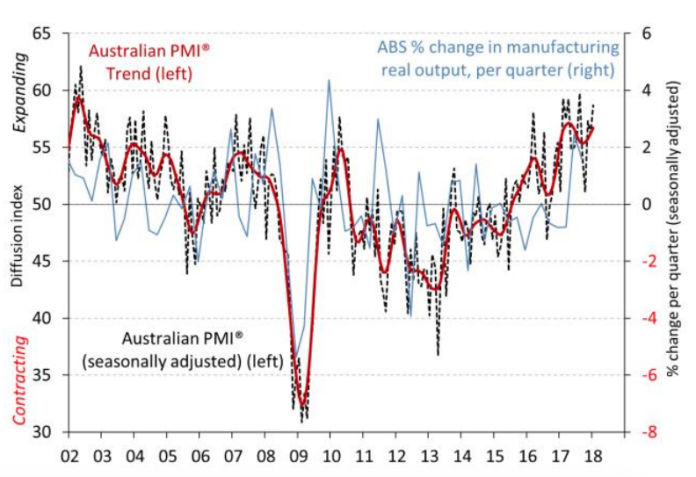
The Australian PMI recorded the largest month-to-month fall in the 28-year history of the index, having dropped by 17.9 points to 35.8 in April.
The result shows that Australian manufacturing contracted at its worst pace since the Global Financial Crisis in April 2009, completely reversing the sharp spike into positive conditions in March, on the back of the unusual surge in demand for manufactured food and groceries.
Ai Group Chief Executive Innes Willox said manufacturers cited a range of COVID-19 issues in April, with the most prevalent including: no new sales due to shutdowns; major customers cancelling orders; supply chain problems with inter-state freight movements and delays; and increased prices for raw materials.
“April 2020 was devastating for Australia’s manufacturers and their employees,” Mr Willox noted.
“Sales plummeted, new orders fell precipitously, production was culled and employment fell more steeply than at any time since the Australian PMI was first launched in 1992.
“Across the diverse manufacturing sector, the steepest deteriorations in performance were in sectors covering textiles, clothing, footwear, paper & printing; building, wood, furniture and other products; metal products; and machinery & equipment.”
According to Ai group’s monthly survey, all seven activity indices in the Australian PMI contracted in April, with the sales (down 24.9 points to 31.6), production (down 16.5 points to 35.3), new orders (down 25.2 points to 32.7) and employment (down 21.7 points to 34.3) indices experiencing their largest month-to-month falls since each index began.
Additionally, four of the six manufacturing sectors in the Australian PMI contracted and two expanded in April.
Mr Willox said the food & beverages sector remained in expansion, despite subsiding shopper stockpiling (down 1.6 points to 52.6), while the chemicals sector was the only sector to improve (up 1.3 points to 51.4).
“The large food & beverage products sector grew in April as did the chemicals sector which includes the production of many cleaning and sanitising products,” Mr Willox said, adding that the unfavourable trends were expected to continue over the next few months.
“With new orders down to such low levels and due to the widespread nature of this disruption, we hope but do not expect conditions to turn around in the next couple of months.”
“The sector is determined to come out of this with renewed strength,” Mr Willox concluded.



















